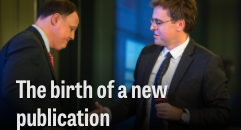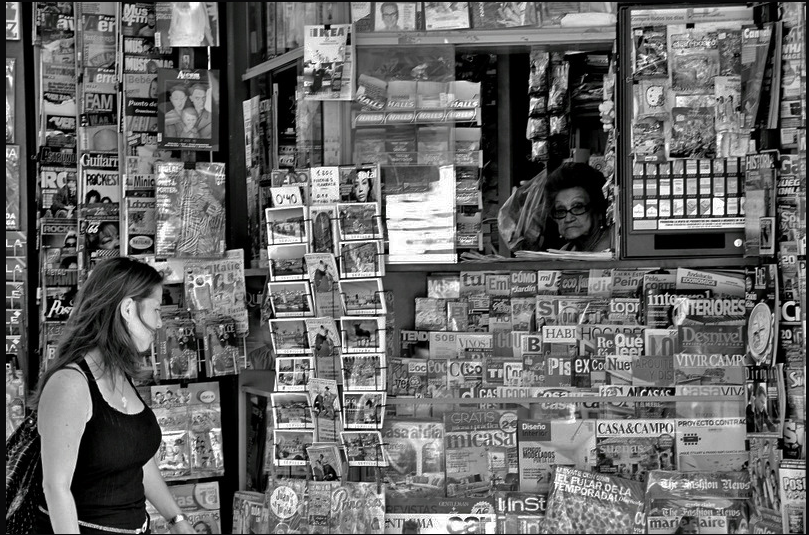 Politico Europe – the new Brussels-based site covering European politics – is doing important pioneer work in establishing the notion of there even being such a thing as a ‘European public sphere’.
Politico Europe – the new Brussels-based site covering European politics – is doing important pioneer work in establishing the notion of there even being such a thing as a ‘European public sphere’.
For European publishers, this is not necessarily a space where you have to or want to be the first mover. It seems advantageous to first let Politico – backed by the politically very conservative, but entrepreneurially very aggressive German publishing giant Axel-Springer – do some of the hard work of not only having to introduce its own brand, but with it – and more importantly – to establish the very idea of there being a European mid-layer between domestic and international journalism.
In the old world, you mostly had the choice between regional and nationwide publishers addressing domestic audiences and the few globalists who ‘cover the world for those who run it’, as my friend Dan Gillmor once put it, describing The Economist, the Financial Times or The Wall Street Journal.
Only very few publishers so far, all with very limited resource and success, such as Euronews, Presseurop, European Voice and Euractiv to mention the main ones , have dared to address us as readers who not only have regional, national or ‘globalese’ identities, but also European identities. Such European identities usually exist in parallel and not in opposition to our national or regional senses of belonging.
European publishers still have some structural advantages (size of staff, brand awareness etc) should they also want to enter this European space. Their biggest obstacles, though, are of a cultural nature.
It is quite likely that domestic newspapers, especially the ‘papers of record’, are culturally over-invested into the idea of the nation state as it only underlines their own importance and the value of the political access they enjoy in their respective capitals.
Most transnational projects of European newspapers so far have mostly consisted of translating each other’s coverage to better serve each paper’s national audience. The wonderful Europa alliance of Le Monde, The Guardian, Sueddeutsche Zeitung, Gazeta Wyborcza and La Stampa went one step further and regularly creates joint editorial projects which you can find here:http://www.theguardian.com/world/series/europa
While this is terribly valuable, it is still not the same as what Politico is now venturing to do, which is to write and edit solely for a transnational, if not pan-European readership from the beginning. The new LENA alliance of various newspapers, led by El Pais‘ former editor Javier Moreno might go one step further.
In the meantime, Politico Europe is one of the most interesting journalistic experiments in many years and one that could work in favour of Europe’s domestic publishers. Many of these organisations have recognised the European opportunity just as well, but didn’t have a strong enough case towards their own boards or parent companies before the arrival of Politico.
The usual – and very plausible – argument against launching pan-European publications thus far has been that there is no pan-European ad market yet and that paywalls are a terrible model to build an audience from scratch, especially outside of your domestic markets.
Politico, with its mix of ad revenue, paid industry newsletters, print ads and paid events might help break the old chicken-or-egg dilemma which has held back domestic publishers from venturing into this promising space for many years.
What do you think?
See also my own speech in Perugia last year:
“Still no pan-European media. Are we crazy?”
https://youtu.be/U4Aan42q_7k?t=9m32s
And my text about the need for pan-European media in Austria’s DER STANDARD (in German):
http://derstandard.at/…/Paneuropaeische-Medien-Machts-euch-…
Pic credit: Politico.eu
Tags: European Union, German Media, La Stampa, Le Monde, pan-european, Politico, public sphere, the Guardian












































